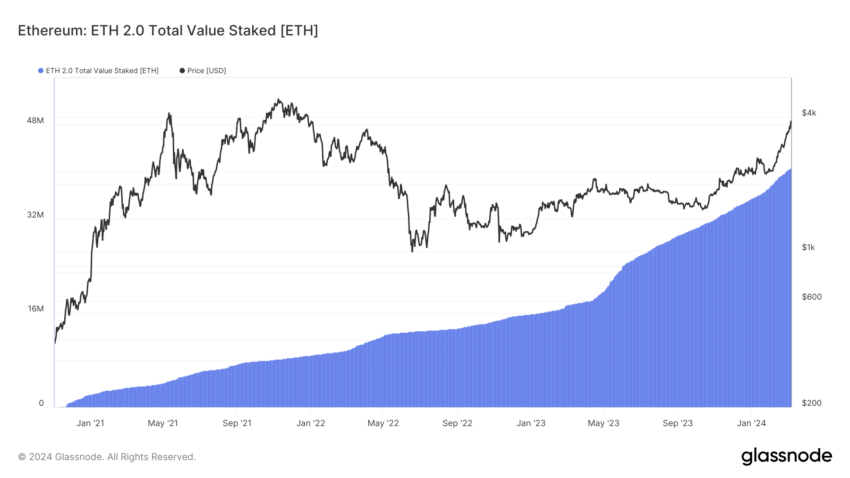
Gary Gensler, Chairman of the US Securities and Exchange Commission (SEC), remains tight-lipped on Ethereum’s classification ahead of critical decisions on Ethereum exchange-traded funds (ETFs).
This stance reflects the uncertainties surrounding cryptocurrency regulations and their alignment with financial products like ETFs.
Is Ethereum a Security?
The spotlight turned to Ethereum following the successful launch of Bitcoin ETFs on January 11, 2024. The immediate success of these financial products has fueled discussions and expectations about the approval of Ethereum ETFs. However, the path to such approvals is fraught with regulatory scrutiny, particularly regarding Ethereum’s nature as a security or a commodity.
Gensler emphasized the speculative nature of cryptocurrencies, highlighting the volatile market conditions that investors should be wary of.
“One could just look at the volatility of Bitcoin in the last few days. I grew up loving roller coasters. Maybe in my adult years, I don’t ride them as much. But you really should be conscious as the investing public that this is a bit of a roller coaster ride on these volatile assets,” Gensler explained.
Read more: Ethereum (ETH) Price Prediction 2024 / 2025 / 2030
His analogy to roller coasters cautions the investing public about the inherent risks in cryptocurrency investments. Despite acknowledging the speculation and excitement around crypto tokens, Gensler refrained from providing a definitive stance on Ethereum’s classification, a pivotal question for the future of Ethereum ETFs.
Still, the conversation around Ethereum ETFs extends beyond regulatory approval to the economic implications of Ethereum’s staking system. In a recent report, BitMEX Research points to the staking yield of Ethereum, around 3.7%, which is also a significant factor that could influence investor interest in Ethereum ETFs.
“The staking system may make Ethereum less attractive or unsuitable for some ETF investors, where the ETFs would presumably be unable to stake. Existing Ethereum holders and stakers may be less willing to stop staking and switch their holding to the ETF, as they would not want to lose out on the yield,” analysts at BitMEX Research said.
The comparison with Bitcoin, which lacks a staking mechanism, highlights the unique considerations for Ethereum-based financial products. The staking yields offer a potential attraction for investors but also pose challenges for ETF structures, particularly regarding the regulatory and practical aspects of staking and redemption processes.
“Given how the exit queue system works, it is possible that large ETF redemptions actually cause more withdrawal delays in a downward spiral type scenario, which is not an ideal product structure and can be said to create a form of systemic risk,” analysts at BitMEX Research emphasized.
Read more: 9 Best Places To Stake Ethereum in 2024

For this reason, the technical and logistical challenges associated with Ethereum’s staking and redemption processes further complicate the potential introduction of Ethereum ETFs. This is why the SEC’s cautious approach, echoed in Gensler’s remarks, reflects the challenges in accommodating cryptocurrencies within traditional financial frameworks.
The post Gary Gensler Refuses to Comment on Ethereum Ahead of ETF Decision appeared first on BeInCrypto.





